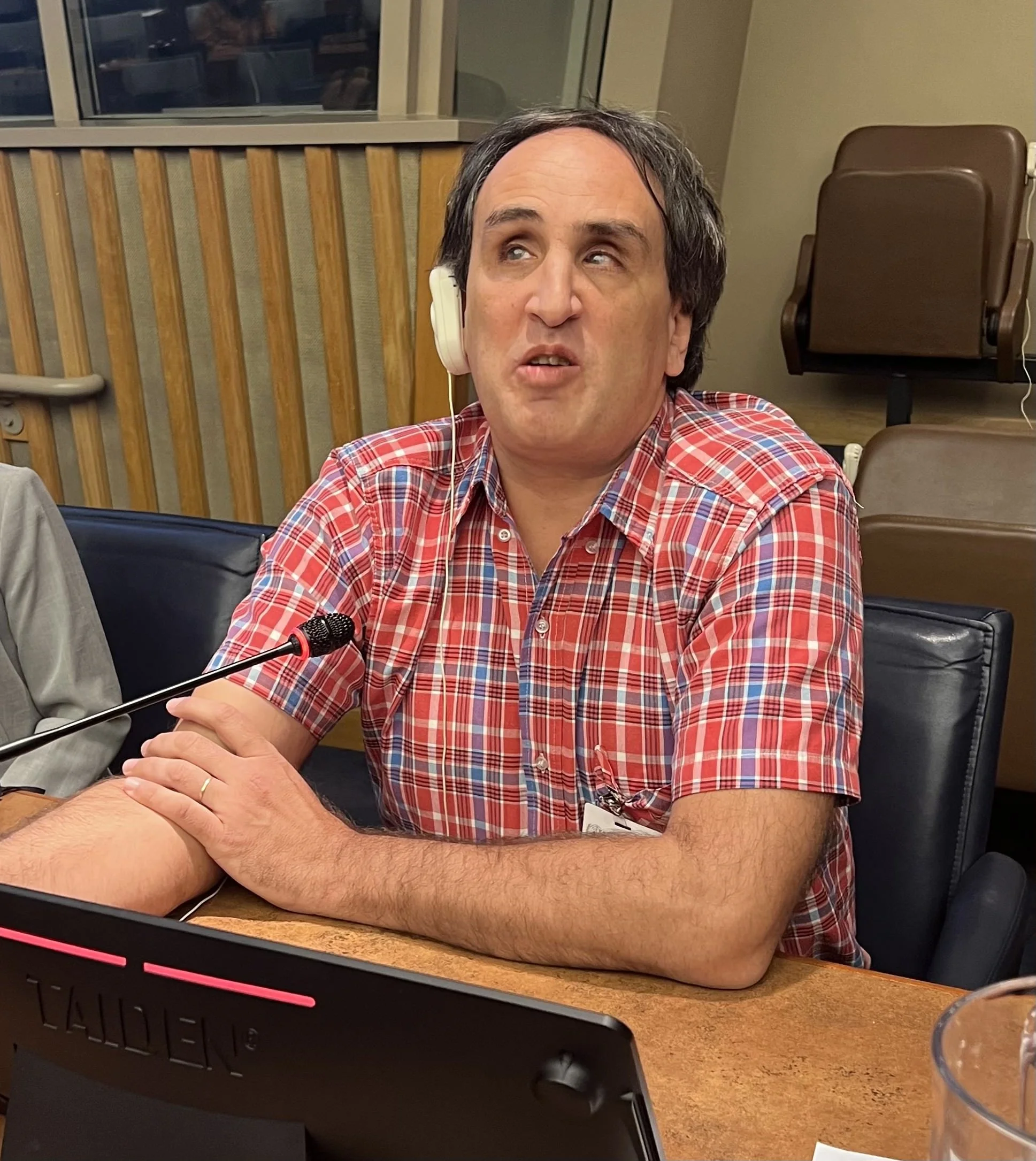Summary of engagement during the Conference of State Parties (COSP) 2023 to the Convention on the Rights of Persons with Disabilities
13 - 15 June 2023
Raising awareness of the crucial role that assistive technology must play to advance disability rights to member states and organizations of persons with disabilities.
Pascal Bijleveld and Advocacy and Communications Specialist Ceridwen Johnson attended the 16th Session of the Conference of State Parties (COSP) to the Convention on the Rights of Persons with Disabilities (CRPD) at the United Nations Headquarters in New York from 13 to 15 June 2023.
Since 2008, the COSP has been convening member states to discuss progress against the convention. It covers a range of themes and issues in round-tables, interactive dialogues and side events. For ATscale, the aim was to raise awareness of the crucial role that Assistive Technology (AT) must play to advance disability rights to member states and organizations of People with disabilities.
To promote this agenda, ATscale co-hosted a side event in partnership with UNICEF entitled ‘Digital Assistive Technology Challenges and Opportunities: The Potential of Mobile Devices’ to raise awareness about the importance of AT in advancing the rights of persons with disabilities, with a particular focus on smartphones.
This side event was moderated by Gopal Mitra, Global Lead on Disability at UNICEF, and the opening statement was delivered by Gry Haugsbakken, State Secretary, Ministry of Culture and Equality of Norway. The event included a panel of experts, consisting of Rodrigo Machado, National Coordinator for Accessibility and Assistive Technology from the Ministry of Human Rights and Citizenship of Brazil; Pascal Bijleveld, CEO at ATscale; Pablo Lecuona, Founder and Executive Director of Tiflonexos; Kylie Shae, Team Lead with the World Health Organization; and Asraa Elghali, a digital assistive technology user from Libya. Closing remarks were given by Victoria Austin, Co-founder and CEO of the Global Disability Innovation Hub.
The panel of experts at the side event
As part of its commitment to supporting the meaningful participation of users of AT in events such as these, ATscale supported Pablo Lecuona, founder and director of AdaptAr Tiflonexos, to participate and highlight the need for investment in this area in LMICs. Having previously participated in other United Nations events and committees, Pablo was already aware of the importance of both political advocacy and sharing his experiences and views with decision and policy makers.
Pablo Lecuona, founder and director of AdaptAr Tiflonexos, speaking at the side event
This being his first experience of COSP, he was impressed by the dynamic panel on smartphones as digital AT, highlighting the importance of including persons with disabilities in these events to ensure real change and progress can be achieved. “I think it was good that the agenda included those of us who have a disability know how to access technology, often those who develop policies and programmes - and even the same companies who develop AT - do not know or see this clearly enough.”
The panel reached a consensus on the importance of public-private-partnerships and accessibility to ensure that digital AT can reach its full potential; the need for proper training for end-users and affordability of devices, and the benefits in terms of self-reliance that this can enable; the potential of digital AT devices such as mobile phones as channels of support for users of many types of AT, including those which are not digital; the necessity of raising awareness about as well as including digital AT in national AT priority lists; and how large and positive an impact access to digital AT can have in the educational and professional prospects of persons with disabilities. An opportunity for questions and answers from the audience was provided and during this period additional examples of the importance and helpfulness of digital AT, particularly smartphones, were shared.
Other ATscale highlights during COSP 16
Pascal Bijleveld made a formal statement in the General debate in which reminded member states that overall funding and support for AT, remains dismally low and urged them to invest more.
During the Roundtable on Digital Accessibility for persons with disabilities, Ceridwen Johnson made a formal statement on the widespread lack of understanding regarding the use and importance of digital assistive technology and shared information about catalytic Digital AT projects currently underway.
ATscale supported the GDI Hub-led side event on ‘What Works’ to improve access to life-changing Assistive Technology (AT) for all, where speakers recognized both successes and failures as the key to an optimistic future for the millions of people in need of affordable assistive technology.
Overall, it was an excellent opportunity for rich conversations, joint planning and collaboration with partners. ATscale hopes this event will lead to more progress in the promotion of assistive technology to advance the rights of persons with disabilities.
Find out more about what ATscale is doing on Digital AT:
Product Narrative on Digital Assistive Technology
Smartphones and digital assistive technology
Text-to-speech for underrepresented languages


